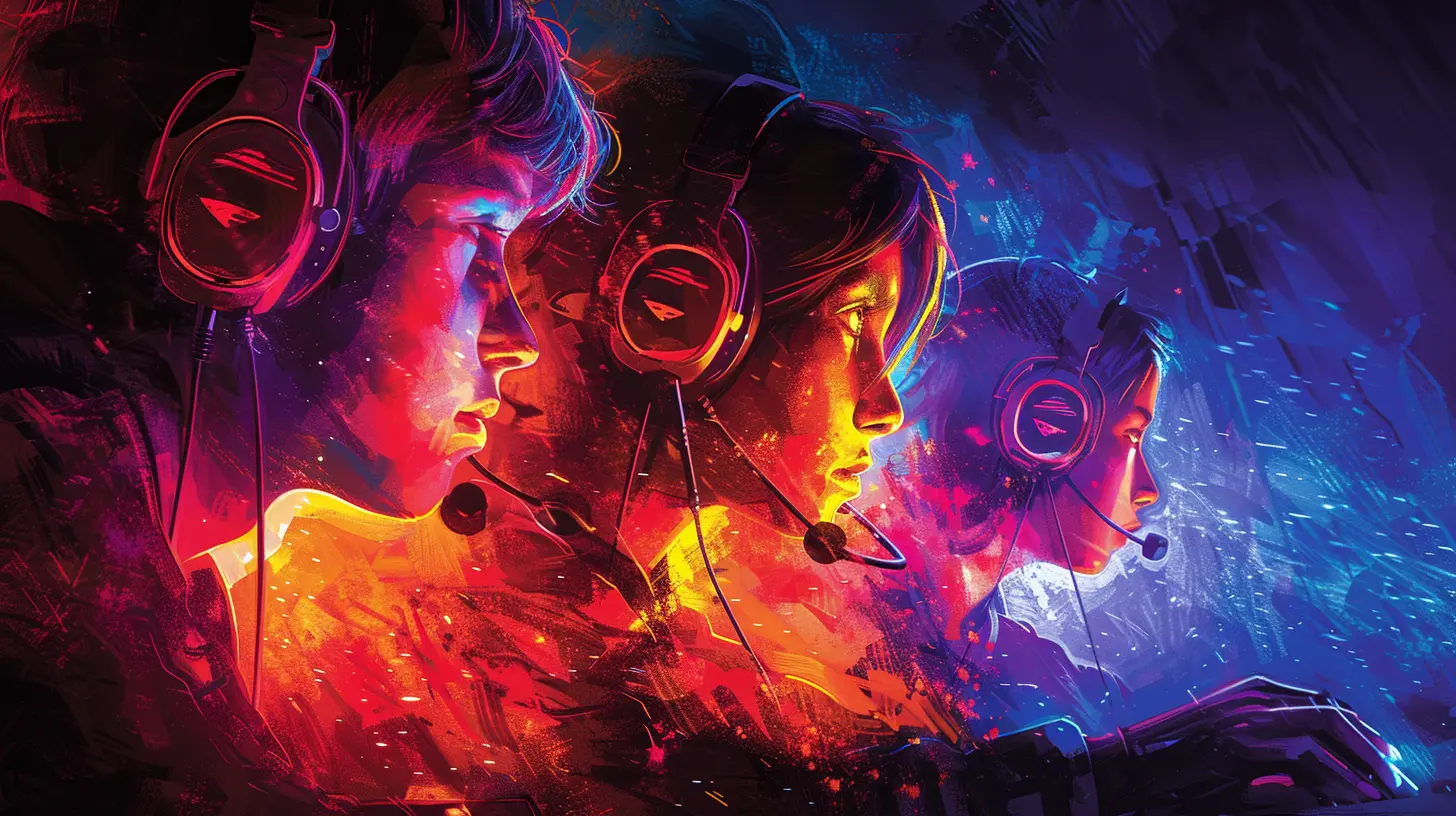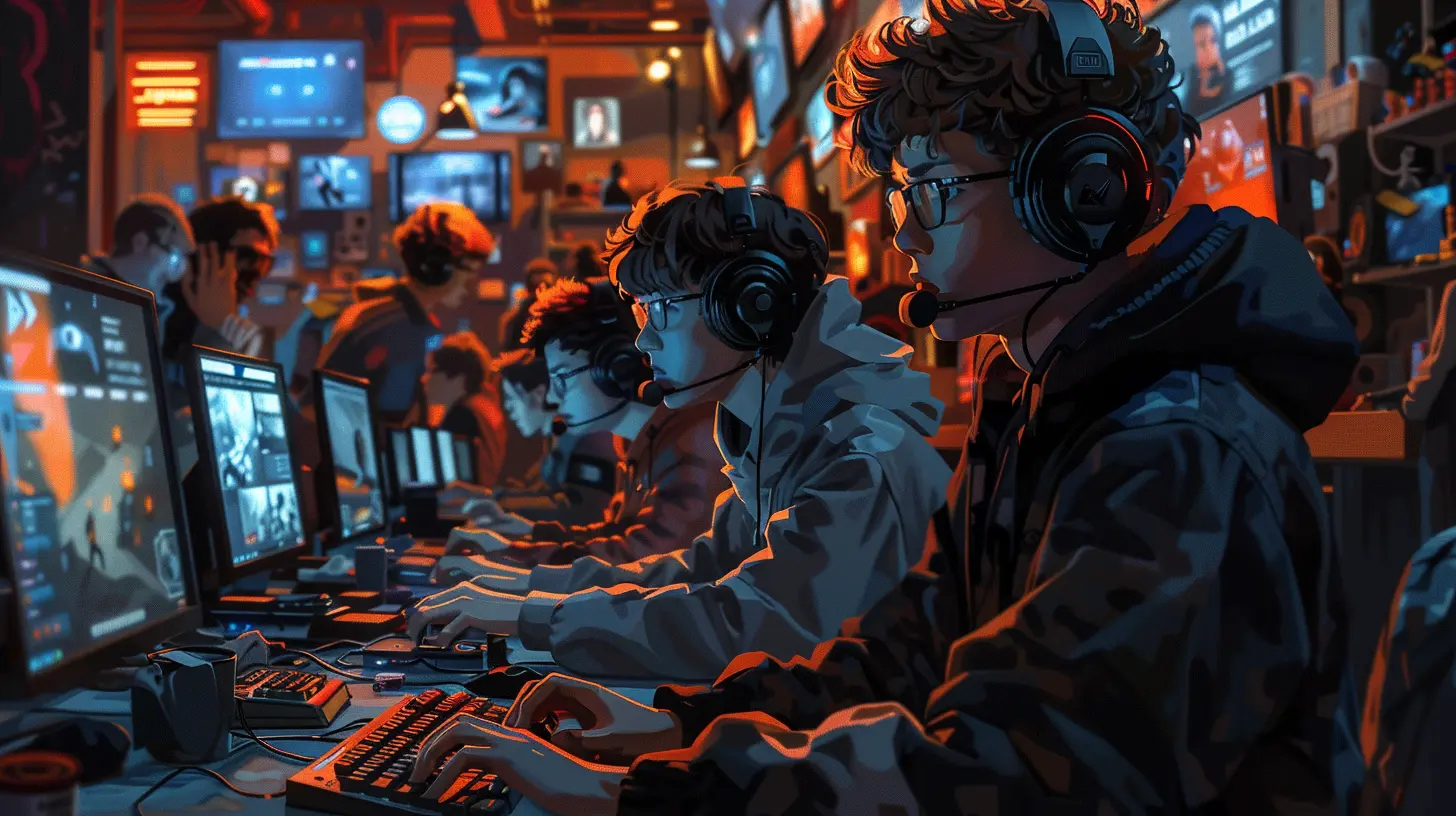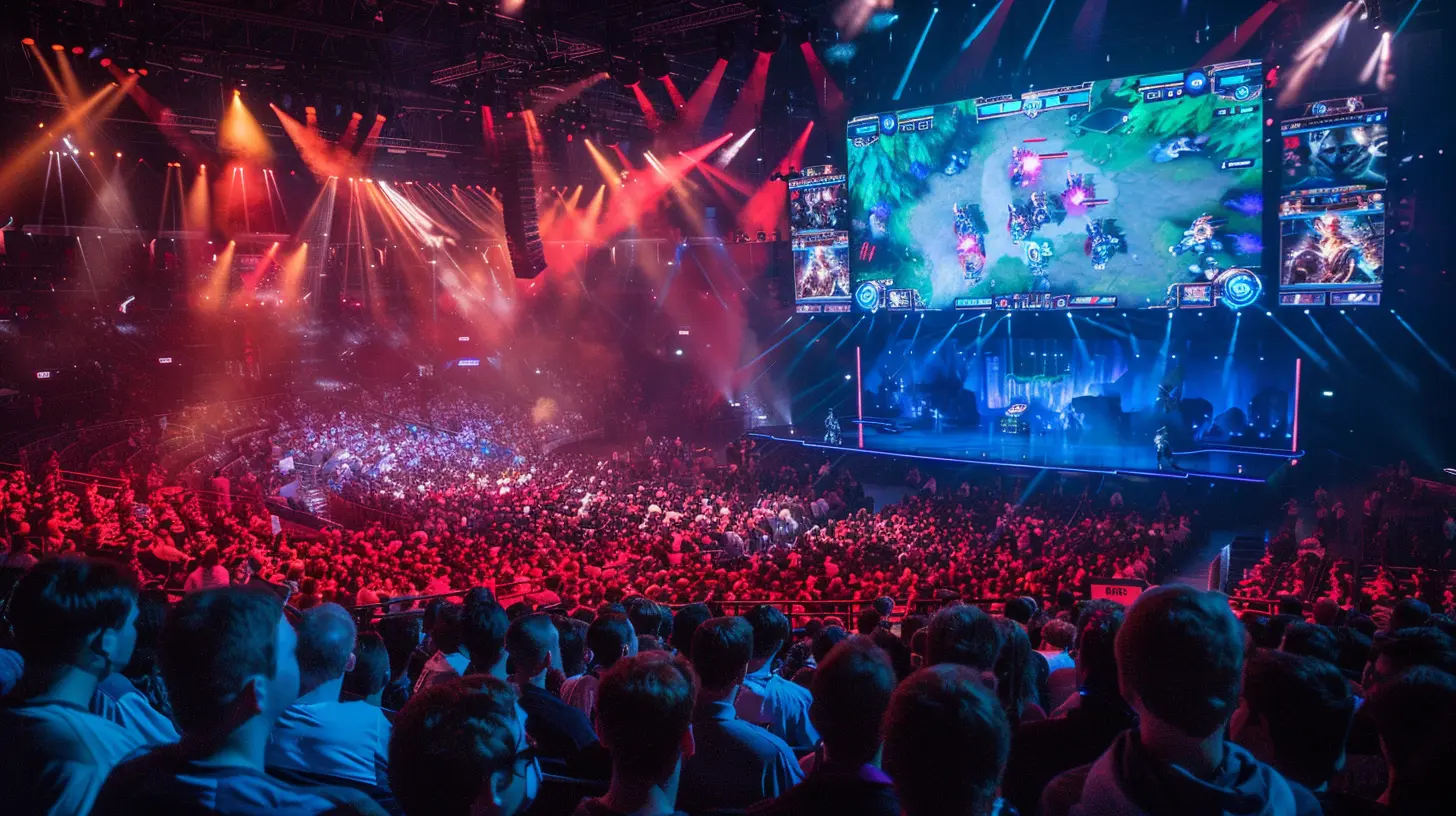E-Sports and Academics: How Colleges Are Embracing Competitive Gaming
25 September 2025
Video games were once seen as a rebellious pastime, something kids did to zone out from school or chores. Fast forward to today, and the narrative has completely flipped. E-sports—once the thing your parents might’ve scolded you for—are now taking center stage in many colleges and universities. Yep, competitive gaming is moving out of basements and into lecture halls. Schools around the globe are not only recognizing e-sports as a viable career path but also integrating it into academic curricula.
Crazy, right? Let’s dive deeper into how colleges are tackling this growing phenomenon and what it means for students (and gamers). 
The Rise of E-Sports in Higher Education
E-sports isn't just about "playing video games." It's a multibillion-dollar industry that’s exploding with opportunities. According to industry reports, global revenues from e-sports have surpassed $1 billion, and that number is only climbing. With enormous fan bases, sponsorship deals, and televised competitions, it’s no wonder colleges want a piece of the action.But what really sealed the deal for e-sports and academia? Two things: rising student interest and the demand for tech-savvy professionals. College campuses started noticing how invested students were in gaming—it wasn’t just a weekend hobby anymore. Gamers were forming teams, hosting tournaments, and treating it like a genuine sport. Schools realized this wasn’t just a passing trend but something they needed to take seriously. 
Why Colleges are Betting Big on E-Sports
1. Appealing to a Tech-Savvy Generation
Let’s be real: college recruitment is competitive. Schools need to stand out, especially in a world where young adults are glued to their screens. Offering e-sports programs is a clever way for colleges to connect with this digitally native generation.Think about it this way: colleges already attract athletes with sports scholarships. Why should it be any different for gamers? E-sports programs allow schools to tap into a whole new demographic of students who might otherwise have overlooked them.
2. Career Opportunities Beyond Gaming
Sure, not every gamer wants to go pro, but that’s okay! E-sports programs teach skills that stretch far beyond playing the game itself. From video production to event management to marketing, the industry is teeming with roles that require unique expertise.Some colleges even offer majors or minors in e-sports management, game design, or digital media. Basically, they’re not just helping students who want to win tournaments—they’re prepping them for lasting careers in the tech and entertainment industries. 
Academic Integration of E-Sports
Okay, so how exactly are colleges weaving e-sports into academics? It’s not just about creating fancy gaming lounges (though, let’s admit, those sound awesome). Schools are treating e-sports like any other extracurricular activity, blending it with traditional education.E-Sports Scholarships and Recruiting
Believe it or not, some schools are now offering scholarships for students to compete on their e-sports teams. They’re recruiting players just like they do for football or basketball. The University of California, Irvine (UCI), for example, was one of the first U.S. colleges to launch a dedicated e-sports program. They even built an arena specifically for gaming events.These scholarships can cover tuition, housing, or other expenses, making higher education more accessible to gamers. Not bad for something you’ve (probably) been told is just “fun and games,” right?
Degrees Specifically Focused on Gaming
It’s not just about playing the games; colleges are also offering academic programs centered around e-sports and game development. For instance, schools like Shenandoah University in Virginia offer degrees in e-sports management, where students learn about the business and operational side of the industry.By studying things like branding, sponsorships, and event logistics, students are getting a crash course in what it takes to succeed in this highly competitive field.
Life Skills Through Gaming
Beyond academics, e-sports also teaches students valuable life skills. Teamwork, communication, leadership—these are essential on and off the screen. And trust me, gaming isn’t as solitary as you might think. In team-based games like League of Legends or Overwatch, collaboration is key.Colleges are framing e-sports as a way to nurture these soft skills, which are incredibly attractive to future employers. 
The Social Side of E-Sports
Let’s not forget: college is also about making connections. E-sports clubs and programs are giving students a sense of community, which is huge, especially for those who might’ve struggled to find their "tribe" elsewhere.Gamers often bond over their shared love of a title—be it Valorant, Fortnite, or Rocket League. These clubs break down barriers, fostering relationships between students of different majors, backgrounds, and even countries.
And while some parents might still cringe at the idea of their kids “hanging out” online, the truth is these communities can be just as tight-knit as traditional sports teams.
Challenges Facing E-Sports in Academia
Of course, it’s not all sunshine and rainbows. Like any new initiative, embracing e-sports in academia comes with its fair share of challenges.1. The Stigma of Gaming
Let’s face it: gaming still carries a bit of a stigma. For years, people have labeled it as lazy or unproductive, which can make it harder for schools to convince others of its value. Some parents, administrators, and even faculty members remain skeptical about the legitimacy of e-sports as a career path.2. Balancing Academics and Gaming
Just like student-athletes, student-gamers need to juggle practice schedules with their coursework. While it’s exciting to compete, the demands of training and participating in tournaments can sometimes clash with academic responsibilities.Schools need to help students find that balance, offering resources like tutoring or flexible class schedules to ensure their education doesn’t take a backseat.
So, What’s Next?
E-sports and academics are still finding their groove, but one thing’s for sure: this partnership isn’t going anywhere. As more colleges invest in gaming programs and build cutting-edge facilities, the industry is only going to grow.For students, the takeaway is clear: if you’re passionate about gaming, there’s a path for you. Whether you’re dreaming of becoming the next Twitch sensation or working behind the scenes to organize tournaments, colleges are creating opportunities to turn those dreams into reality.
And for everyone else? It’s about time we stop dismissing gaming as a waste of time. In the right hands, it’s becoming a powerful tool for education, teamwork, and innovation.
Final Thoughts
E-sports and academics might sound like an odd pair, but they’re proving to be a match made in heaven. Colleges are no longer dismissing competitive gaming but embracing it as a legitimate avenue for growth and learning. Whether you’re a die-hard gamer or just someone curious about where the world is heading, it’s hard not to admire how video games have leveled up the educational landscape.Who would’ve thought that something once dismissed as mere entertainment could one day become a cornerstone of modern academia? The game has truly changed—pun fully intended.
all images in this post were generated using AI tools
Category:
E SportsAuthor:

Luke Baker
Discussion
rate this article
1 comments
Berenice Reilly
Great article! It's fascinating to see how colleges are integrating e-sports into their programs. This innovative approach not only enhances academic offerings but also provides students with unique opportunities.
September 28, 2025 at 3:52 AM

Luke Baker
Thank you! I'm glad you found the article insightful. It's exciting to see how e-sports are shaping educational experiences!


